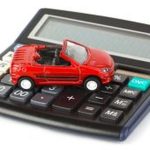What to Look for When Shopping for Non-Owner Car Insurance
Shopping for non-owner car insurance is a complicated process with plenty of pitfalls along the way. It requires a buyer to take into consideration many aspects of the policy in order to make a wise decision about coverage. To make sure you’re finding the best rate and coverage for your situation, here are some things to look for while shopping for non-owner car insurance.
First, consider the type of coverage you need. Do you need basic liability coverage, or would you like to add additional coverage such as collision or comprehensive? It’s important to know the type of coverage you need before shopping for the policy, as this will help you determine the amount of premium you’ll pay.
Second, look for discounts. Non-owners car insurance policies often have a variety of discounts available, such as multi-policy discounts, good driver discounts, low mileage discounts, etc. Look for companies that offer these discounts to save on your premium.
Third, pay attention to the deductibles. The higher the deductible, the lower the premium for the policy will be. However, it’s important to consider if you can afford to pay the high deductible in case of an accident or other damages.
Fourth, read the policy documents carefully. Make sure you understand what the policy covers and what it does not cover. Make sure to ask questions if there are any points you don’t understand.
Fifth, ask for advice. Speak to other people who have taken out a non-owners car insurance policy and ask them how it has worked out for them. Ask if there are any tips they would give you when choosing a policy.
Sixth, contact your state’s insurance commission. The state’s insurance commission can provide you with valuable information about auto insurance companies, so you can get a good idea of which ones are reliable and offer fair rates.
Seventh, compare quotes. When shopping for non-owner car insurance, it’s important to compare quotes from different companies. This will give you an idea of which policy best fits your budget and needs.
Taking the above steps into consideration will help you find the best policy to fit your situation. Now lets take a deeper look into the topic and consider four additional sections.
Covering Multiple Cars
When shopping for non-owners car insurance, it’s important to consider the coverage needs of multiple cars if you own more than one. Some policies only cover one car while others may cover multiple cars under the same policy. Also, consider whether you need to add additional coverage for towing and roadside assistance if you won’t have a designated vehicle to use for your non-owner policy.
Exclusions and Limitations
Make sure to read the exclusion and limitation clauses in the policy. This will let you know what is not covered by the policy and what limitations it has. It’s important to understand all the exclusions and limitations in order to make sure you are adequately covered in the event of an accident or other damages.
Coverage Amount
The amount of coverage is an important factor to consider. You’ll have to determine what amount of coverage is best for you. It’s important to note that too little coverage can leave you vulnerable and too much coverage can cause up the cost of your premiums.
Know Your State Laws
Make sure to familiarize yourself with your state’s insurance laws in regards to non-owners policies. Its important to make sure you know what minimum coverage is legally required so you can make sure you are adequately covered.
No matter why you need non-owner car insurance, it’s important that you carefully consider all the factors that go into choosing the right policy for you. Take into consideration the type of coverage, discounts, deductibles, exclusions, and the amount of coverage needed in order to make sure you are getting the best value for your policy. Also, make sure to familiarize yourself with your state’s laws and regulations surrounding non-owner car insurance policies. With this knowledge, you can make an informed decision about the best policy to fit your unique situation.




